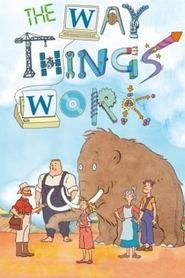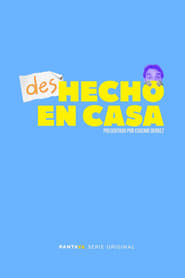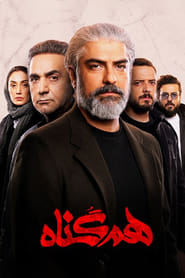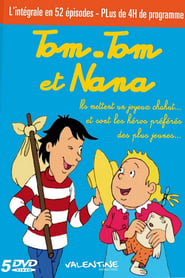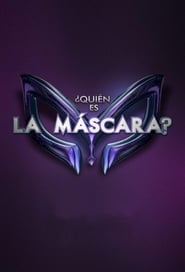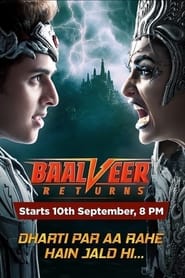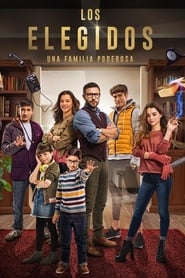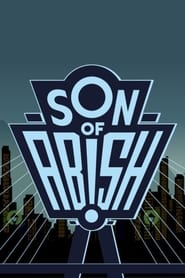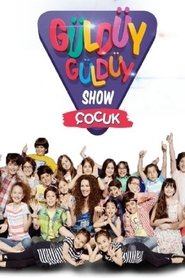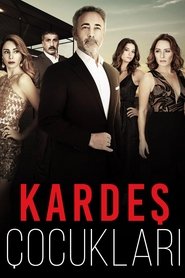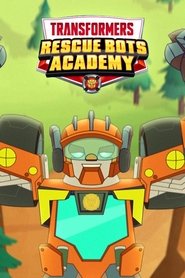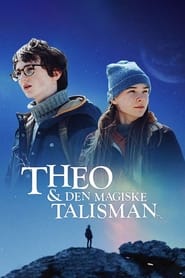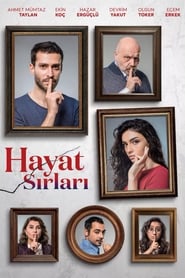Top Rated Family TV Series on Pantaflix - Page 98
-
The Way Things Work
2004
The Way Things Work
2004
star 7.4The Way Things Work was a short-lived television series based on the best-selling book of the same name by David Macaulay. -
desHecho en Casa
2020
desHecho en Casa
2020
star 6“DesHecho En Casa” follows Eugenio Derbez in this closed-door adventure with his wife Alessandra, daughter Aitana and dog Fiona. Each episode is a combination of skits, fun tutorials, and video calls with your older kids and friends too. -
Casey Neistat Vlog
2015
-
The Accomplice
2020
The Accomplice
2020
star 4.2The Saburi family is a large and old family that has been exporting and importing flowers and plants for many years. They still live in peace in an old house, the arrival of a young man in this family changes the lives of the whole family. -
Tom-Tom et Nana
1998
-
¿Quién es la Máscara?
2019
star 6.2¿Quién es la máscara? (Spanish for Who is the Mask?) is a Mexican talent reality television series produced by Televisa and Endemol Shine Group. It is based on the South Korean television show King of Mask Singer created by Seo Chang-man. -
Baalveer
2019
Baalveer
2019
star 7.2Balveer is an ordinary child, who is whisked away to Pari Lok at a young age and is blessed with the power of the six fairies. -
Supermarket Sweep
2019
Supermarket Sweep
2019
star 9Three pairs of shoppers go wild in the aisles as they compete to win a 3,000-pound prize in this reboot of the iconic game show. -
Yong-Jiu Grocery Store
2019
star 8.9Jung Long, has left home to study in Taipei, only to return to be the keeper of the family grocery store after his grandfather has gotten ill. However, he is not just guarding the store, but also the rich emotions and sentiments within it, and Jung Long’s memories of growing up are once again reawakened by his return. -
Mannequin
2019
Mannequin
2019
star 4.2They have always had great and beautiful love, great and dreadful enemies, the lover and the beloved have to face many sufferings for the sake of their poetic love… -
Originalos
2010
Originalos
2010
star 6.8A stone-age animated comedy focusing on the invention of a specific objects or ideas that we use in our everyday life. -
Los Elegidos
2019
Los Elegidos
2019
star 8.4A group of children and adolescents with supernatural abilities pose as a family to hide their powers from a volatile military man who seeks to use them for nefarious deeds. -
Son of Abish
2014
-
Are You Smarter Than a 5th Grader
2019
star 8.2The hit game show where adults have to answer grade-school level questions to win big is back! And this time, the kids play a bigger role as they help contestants prove that they're smarter than a 5th grader. -
Otoko Meshi
2016
Otoko Meshi
2016
star 7.6University student Wakamizu Ryota (Emoto Tokio), who is the middle of job hunting, gets caught up in a sudden gang dispute. Ryota’s life is saved by Yanagiba Ryuichi (Namase Katsuhisa), the boss of Yanagiba-gumi, and Ryota for some reason ends up harbouring Yanagiba in his own home. Ignoring Ryota who wants him to leave immediately, Yanagiba uses the leftover food in the fridge and starts to prepare a meal without asking. However, the meal is surprisingly delicious despite the leftovers that did not seem possible to combine. This is the beginning of a bizarre communal life connected by meals for a gangster and a university student. -
Kardeş Çocukları
2019
Kardeş Çocukları
2019
star 6.6The paths of the two mothers whose dreams and lives are different from each other intersect and cause unexpected events after years. -
Transformers: Rescue Bots Academy
2018
star 6.6Five students of the Rescue Bots Training Academy from Cybertron—Hot Shot, Whirl, Medix, Hoist and Wedge—learn to respond to emergency situations and become heroes. -
Theo and the magic talisman
2018
star 8.8Theodor travels to the magical land of Thannanaya to save his grandfather from dying. With him on the trip he gets Simone, who has just started the class. -
The Secrets of Life
2017
The Secrets of Life
2017
star 8.4The Secrets of Life centers the heartwarming, intense and a bit thrilling story of Kuzgun family whose happiness was wrecked when the secrets of family members comes out one after another. While the audience is captured by the heart breaking and passionate love story of Burak and Seher.
 Netflix
Netflix
 Amazon Prime Video
Amazon Prime Video
 Apple iTunes
Apple iTunes
 Apple TV Plus
Apple TV Plus
 Disney Plus
Disney Plus
 Google Play Movies
Google Play Movies
 Paramount Plus
Paramount Plus
 Hulu
Hulu
 HBO Max
HBO Max
 YouTube
YouTube
 fuboTV
fuboTV
 Peacock
Peacock
 Peacock Premium
Peacock Premium
 Amazon Video
Amazon Video
 The Roku Channel
The Roku Channel
 AMC+
AMC+
 Kocowa
Kocowa
 Hoopla
Hoopla
 The CW
The CW
 Vudu
Vudu
 Starz
Starz
 Showtime
Showtime
 PBS
PBS
 Pantaflix
Pantaflix
 FXNow
FXNow
 Tubi TV
Tubi TV
 Kanopy
Kanopy
 Comedy Central
Comedy Central
 Crunchyroll
Crunchyroll
 Microsoft Store
Microsoft Store
 Redbox
Redbox
 Sun Nxt
Sun Nxt
 ABC
ABC
 DIRECTV
DIRECTV
 Crackle
Crackle
 Fandor
Fandor
 Plex
Plex
